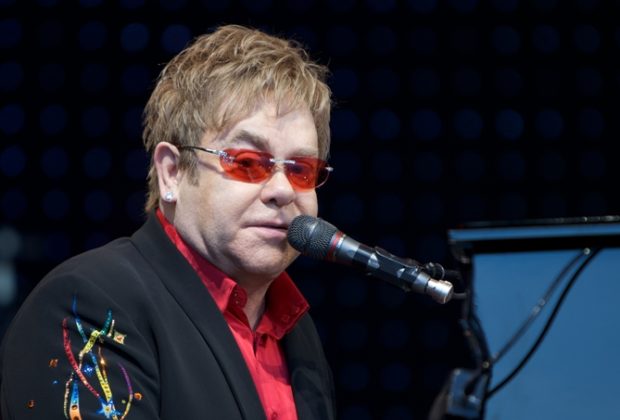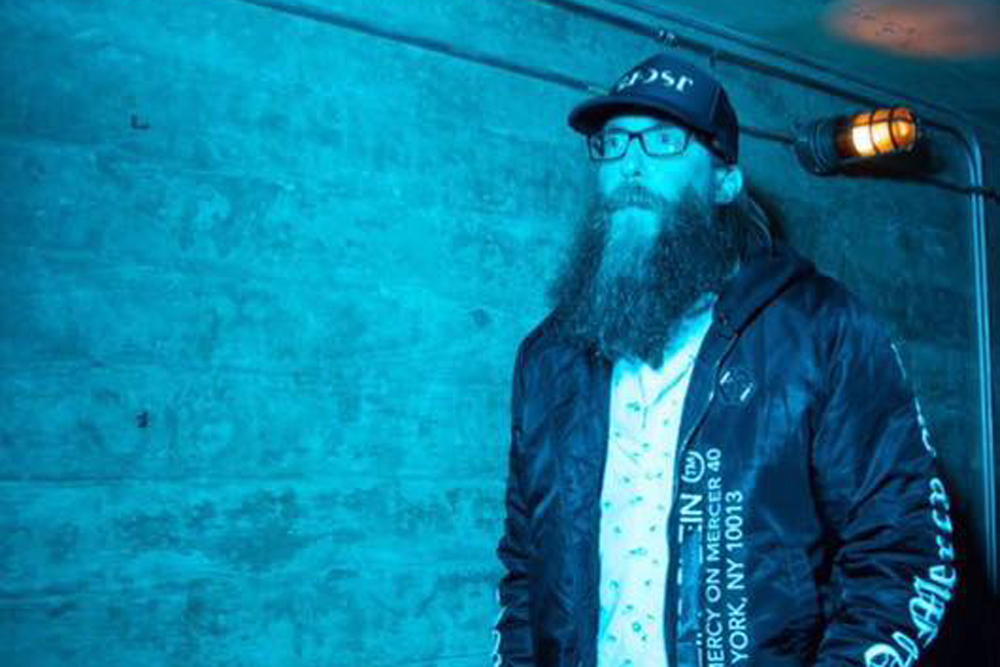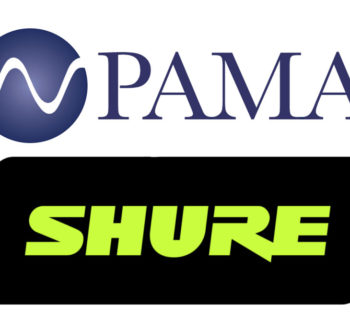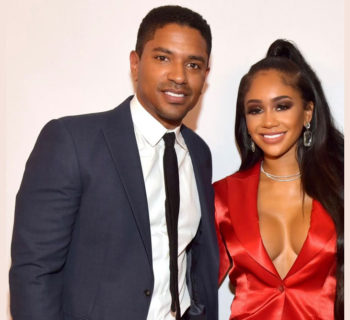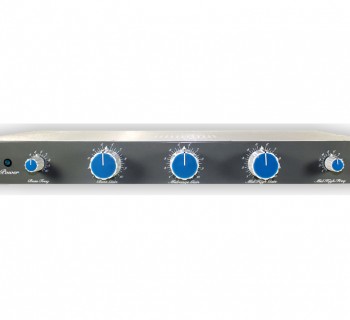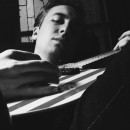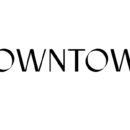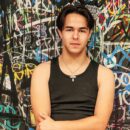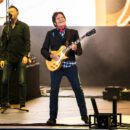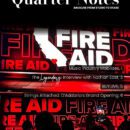Rocketman is an epic musical fantasy about the incredible human story of Elton John’s breakthrough years. The film follows the fantastical journey of transformation from shy piano prodigy Reginald Dwight into international superstar Elton John. This inspirational story – set to Elton John’s most beloved songs and performed by star Taron Egerton – tells the universally relatable story of how a small-town boy Reginald Dwight from the London suburb of Pinner became one of the most iconic figures in pop culture aka Elton John.
Rocketman also stars Jamie Bell as Elton’s longtime lyricist and writing partner Bernie Taupin, Richard Madden as Elton’s first manager, John Reid, and Bryce Dallas Howard as Elton’s mother Sheila Farebrother.
The film is directed by Dexter Fletcher and written by Lee Hall. Fletcher helmed Eddie the Eagle in 2016 and replaced Bryan Singer as director of the Queen biopic Bohemian Rhapsody also earning an executive producer credit.
Rocketman is set to premiere on May 16 at the Cannes Film Festival, and scheduled to be released in the U.K. May 22, 2019 and during May 31 in the U.S. by Paramount Pictures.
Me, Elton John’s first official autobiography will be published by Henry Holt & Co., a division of Macmillan on October 15.
Written by Elton alongside writer and music critic Alexis Petridis, Me promises to be a no-holds-barred account of Elton's life and work as the most enduring singer/songwriter of his generation.
From his first American tour, where he astonished audiences dressed in silver hotpants and a t-shirt emblazoned with the sequined slogan "ROCK AND ROLL," to his chart-topping success, friendships with John Lennon, Freddie Mercury and George Michael and his struggles with drug addiction, Me is the joyously funny, honest and moving story of the most enduringly successful singer/songwriter of all time.
In an announcement from his publisher, Elton John said, "I'm not prone to being a nostalgic person. I'm often accused of only looking forward to my next gig or creative project. It's come as quite a surprise how cathartic I am finding the process of writing my memoirs. As I look back, I realize what a crazy life I have had the extreme privilege of living. I have grown up in a period of extraordinary change in our world - and have had the joyful honour of rubbing shoulders and working with so many of the people at the heart of these changes. My life has been one helluva rollercoaster ride and it's still lumbering on. I hope readers will enjoy the ride too."
I was an avid reader of Melody Maker since 1966. I first became aware of Elton John’s Empty Sky DJM record label debut LP in June of 1969. His piano playing, voice and some tunes were impressive and the album only hinted at his greatness. [It was later released in 1975 on the MCA Records label in the US].
The next year in Melody Maker there was a review from reporter Richard Williams about Elton’s second long player simply titled Elton John in the April 25, 1970 issue.
“It's nice to see Cat Stevens and Elton John providing the British answer to Neil Young, and Van Morrison. And make no mistake Elton is up in that class.
“This is his second album, and is considerably meatier and more substantial than the first. He and Bernie Taupin craft superb songs, strong in every department (words, music, moods), and Paul Buckmaster's sumptuous arrangements. Gus Dudgeon's brilliant production lifts the result almost beyond words. If Elton has a fault, it's that he sometimes sounds rather too much like Feliciano in the way he turns and ornaments phrases, but once you get past that it's beauty all the way.
“A truly great record.”
I really dug Jose Feliciano’s vocal delivery on his hit RCA recordings besides the dazzling arrangements and re-workings of "Light My Fire" and "California Dreamin'."
After reading Williams’ endorsement, I immediately ordered the Elton John import from Lewin Record Paradise on Hollywood Blvd. It served as the aural trailer for the eventual retail LP that UNI/MCA label Vice-President Russ Regan signed for North American territories.
I met Russ in 1968 or ’69 at the Whisky a Go Go one evening when his label act, High Masekela was cutting a live album in the famed venue. I finally turned age 18 and allowed to enter this temple of sound.
I later ran into Russ that summer of ’70 on Hollywood Blvd. at C.C. Brown’s ice cream parlor. We ordered two hot fudge sundaes in tin bowls.
Russ started talking about Elton John. I knew the name. He just beamed, and exclaimed, “You are gonna hear this guy on the AM and FM radio dial.” Russ also added, Three Dog Night has already covered his tunes "Lady Samantha" and "Your Song."
I didn’t quite know how important or vital that accomplishment actually meant at the time.
Russ Regan has played a major role in the careers of the biggest names in the music business, including the Beach Boys, Neil Diamond, Elton John, Barry White, Olivia Newton-John, and the Alan Parsons Project-all of whom credit Regan as a major force behind their success.
In my 2014 book, Turn Up The Radio! Rock, Pop, and Roll in Los Angeles 1956-1972, (Santa Monica Press), Regan talked at length about his discovery of Elton John and guiding his career in the United States during the first part of the seventies.
“UNI Records was on 8255 Sunset Boulevard.
“Lenny Hodes was a song-plugger for Dick James Music. I knew of Dick James—he was the Beatles’ publisher—but had never met him. Lenny bought me this [Empty Sky] record and said, ‘DJM [Dick James Music] has a licensing deal with Larry Uttal of Bell Records, and they passed. I’ve shopped this everywhere, and it’s been turned down by five record companies. They think he sounds like Jose Feliciano.’”
Songwriter Roger Greenaway also praised Elton John to Regan at the Continental Hyatt Hotel at that breakfast supporting Regan’s impulsive decision to sign Reg to UNI.
“I took it, and around six o’clock that night, I put it on,” recalled Regan. “It was the Empty Sky album. ‘Oh my God,’ I thought, ‘this guy is good. What the hell is the problem?’ I loved his voice and the songs. 'Skyline Pigeon' and stuff like that. 'Lady Samantha' was in there. I called Lenny and said, ‘I like this artist. What’s the deal?’ He said, ‘If you like him, Russ, you got him for nothing.’ So I said, ‘I want him, and I want to sign him.’
“He calls me the next day and says, ‘I just talked to Dick James, and we have a deal. But Dick wants you to buy another act along with this kid. We’re giving you Elton John for nothing, and Dick wants $10,000 for a band called Argosy; I replied, “because you guys are so nice to give me Elton John for nothin’, I’ll buy this other master for $10,000.’
“Then, before I could put out Empty Sky, the advance of the Elton John album came to me in the mail. That’s when I shut the record label down for a couple of hours [and] brought [in] the employees, sales and marketing, A&R, everybody—thirty people sitting on the floor of my office. I looked up to the sky and said, ‘Thank you, God.’
“Bernie Taupin’s lyrics, if you analyze them, were incredible. He was way ahead of everybody. For a 21-year-old kid at the time he was amazingly talented.
“Paul Buckmaster the arranger. The arranger is important. Sometimes you have to play the song to a skeleton without any meat on it. The arranger comes along and puts the meat on the skeleton. It all comes together. Am arranger takes a song for what it is and builds something around it and gives it life and dynamics.”
In 2014, I interviewed Paul Buckmaster for my book on Leonard Cohen, Everybody Knows. Paul worked on Cohen’s Songs of Love and Hate.
“My background was completely classical from a tot. I received a scholarship to the Royal College of Music and graduated in 1967. My cello professor then called and I was invited to tour with the Bee Gees’ backing orchestra.
“I was an outside client of Trident Studios in London, sometimes coming in as an arranger or an arranger/producer, sometimes playing on sessions on cello or as a keyboardist, or all of it as production work.
“I had been doing a lot of pop work. I had already done Space Oddity with David Bowie in 1969, and then a couple of albums with Elton John, his debut U.S. LP, and 'Tumbleweed Connection' and the 'Friends soundtrack.' The movie score. It was not just strings and horns. I was responsible for arranging the rhythm section on the 'Elton John' album and most of 'Tumbleweed Connection,' and most of 'Madman Across The Water.'
“The Trident Studio in Soho was as an anechoic as it could get. When you shut the heavy doors of the studio your ears compressed. It was so dead in there. Every surface was totally absorbent. Not one reflective surface. Even the Steinway piano had a ‘car cover.’ And the studio floor was as dead as a doornail. And the sound which was great was a combination of the studio and the genius engineer, Robin Cable. He was a brilliant engineer. He was the guy who made drums sound as if they were bitchen’ It was saturation tape. What was there was a proper echo chamber and a plate. That was the only reverb that existed there.”
“I met Gus Dudgeon while preparing some arrangements for a female vocalist,” Buckmaster later stressed in a 2014 lecture at the UCLA Herb Alpert School of Music: Songwriters on Songwriting: Killer Hooks, Essential Songs & Songwriters of the Rock Eraclass taught by Professor David Leaf.
“It wasn’t an audition for her so much as for me. Tony Visconti hired me to work on [David Bowie’s] 'Space Oddity.' I was obsessed with Kubrick’s 2001. I saw it at least a dozen times and really tried to bring that quality from the movie’s score, which featured Richard Strauss and in particular, Gyorgi Ligeti. Unfortunately, that cheesy mellotron swamped my strings and you can’t really hear my work.
“On November 3, 1969, I went to see Miles Davis at Ronnie Scott’s. I had befriended Tony Hall who was a great friend of Miles and we were his guests.
"During a set break, I’m tapped on the shoulder by Steve Brown, a music industry figure who introduces me to a fellow artist who he is representing Mr. Elton John.
“Elton asked if I would be willing to do some arranging on his new album.
“I listened to some demos really loved them but don’t ask me why and suggested that Gus Dudgeon would be the perfect producer for this project. Steve and Elton agreed wholeheartedly.
“Gus and I spent three days in his office, breaking down every song. I wrote the rhythm section parts as well as the orchestrations-and we recorded and mixed the whole thing in seven days. We were given total carte blanche. Elton and Steve expected us to be thoroughly professional and we were.
“One example: On Sixty Years On, I decided to replace Elton’s piano part with a harp, because that’s what the song told me to do. I’m always in service of the song, nothing else. Take Me to The Pilot features my rhythm charts; I even wrote out the drum fills which were played beautifully. I’m really a frustrated funk drummer who missed his calling."
In November 2017 when Buckmaster died, Elton John on his twitter account posted, “RIP Paul Buckmaster. So heartbroken. He helped make me the artist I am. A revolutionary arranger who took my songs and made them roar.”
The pianist and singer Elton John landed in Los Angeles in late August 1970, along with drummer Nigel Olsson and bassist Dee Murray. John’s songwriting partner Bernie Taupin was also there.
“Danny Hutton of Three Dog Night used to tout Elton in 1969, and earlier [he] was my driver,” record producer and songwriter Kim Fowley informed me in a 2014 interview.
“I recorded him for Challenge and Invictor Records. His mother was my landlady. Danny was, and is, cool.
“In the late summer of 1970, I was living in Sweden. I was at an outdoor music festival and onstage with P.J. Proby. We followed the Move. Elton was there and playing piano with Blue Mink at the time. They followed us. Elton said to me, ‘I remember you when you were on 'Tops of the Pops,'singing 'They’re Coming to Take Me Away,' Ha-Haaa!'
“I was on that 1966 TV show in England, with Los Bravos and the Small Faces. I told Elton, at that 1970 festival in Sweden, ‘Pay attention to Danny Hutton when you come to town. He will steer you through LA, and you will survive because of him.’
“I wished him luck. That was a Saturday night, and on the following Monday he left for Hollywood.
“Before his Troubadour shows, Elton did come up to Danny’s house on Lookout Mountain. Danny also took Elton for his first Hollywood meal, at Billy James’s Black Rabbit Inn.”
Before meeting Russ, Elton immediately visited Danny Hutton at his house.
In Canyon of Dreams The Magic and the Music of Laurel Canyon (Sterling), my 2009 book, Danny Hutton discussed his initial encounter with Elton John, aka Reg Dwight.
“I first met him in 1969 in England when I was looking for songs for Three Dog Night. So I phoned Dick James Music and Reg Dwight came up to my room and had some demos, which I still have. Reg or Elton, I really liked him. He was so sweet and sincere.
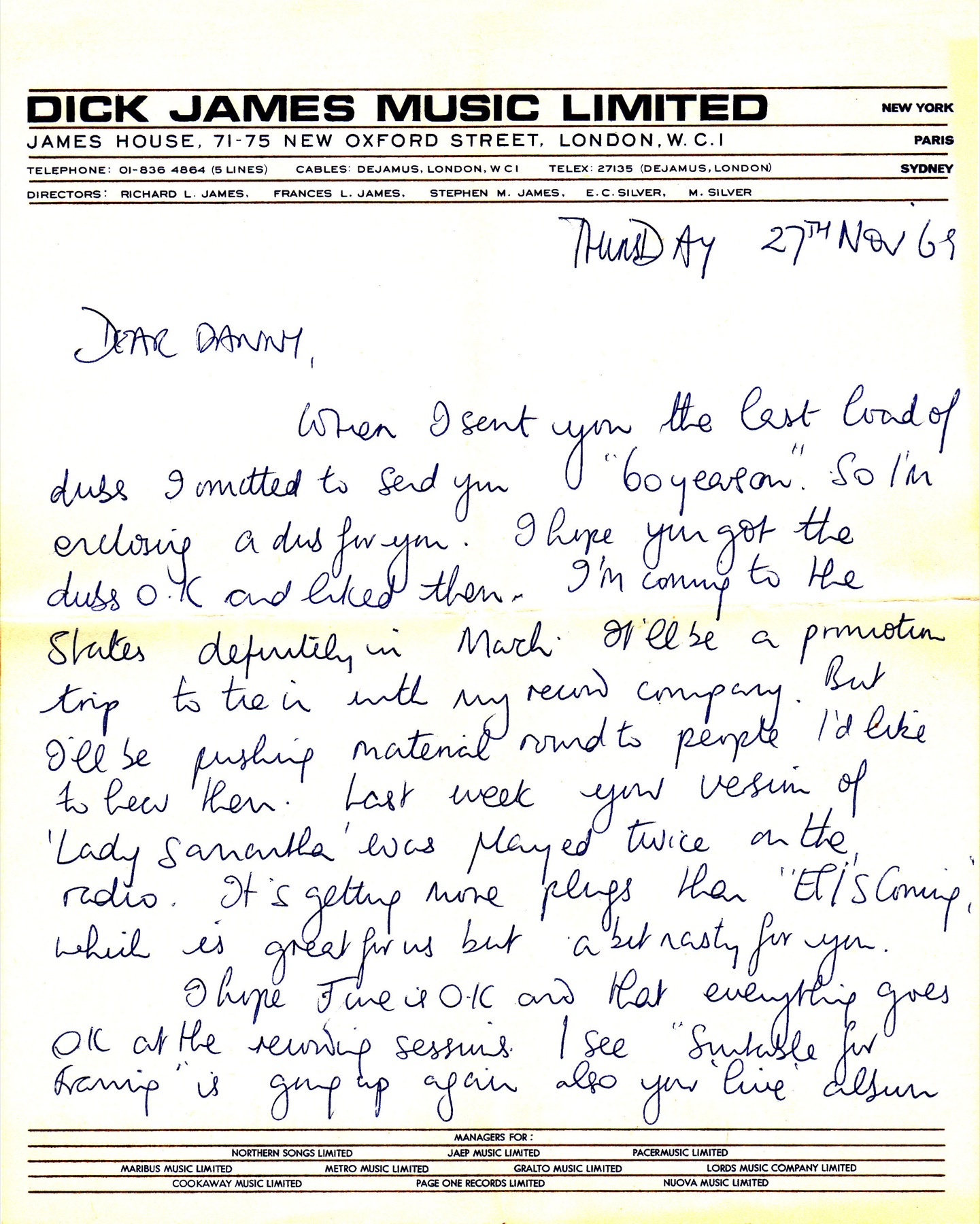
Letter courtesy of Danny Hutton and the Danny Hutton Archive.
“I invited him to a small club where we are doing a show. The bouncer came up and said ‘Did you invite somebody because I don’t have him on the list.’ He’d come with Bernie Taupin. They were downstairs in the bar and I went down and he was humming something. I said, ‘You’re a great singer.’ And Elton said, ‘Nah. I’m a songwriter, not a singer.’ Maybe he was working me.
“Later on I couldn’t get him on the list for our show at the Marquee Club so we brought him in as our roadie. Reg knew my resume. We were a hot, hot band.
“I heard ‘Lady Samantha’ and brought it to the group. Our producer, Gabriel Mekler, had all three of us sing it and had Chuck [Negron] do the lead vocal. I liked the song. We also did ‘Your Song.’ And then I got a three-page handwritten letter from Elton thanking me for helping him and Bernie out.
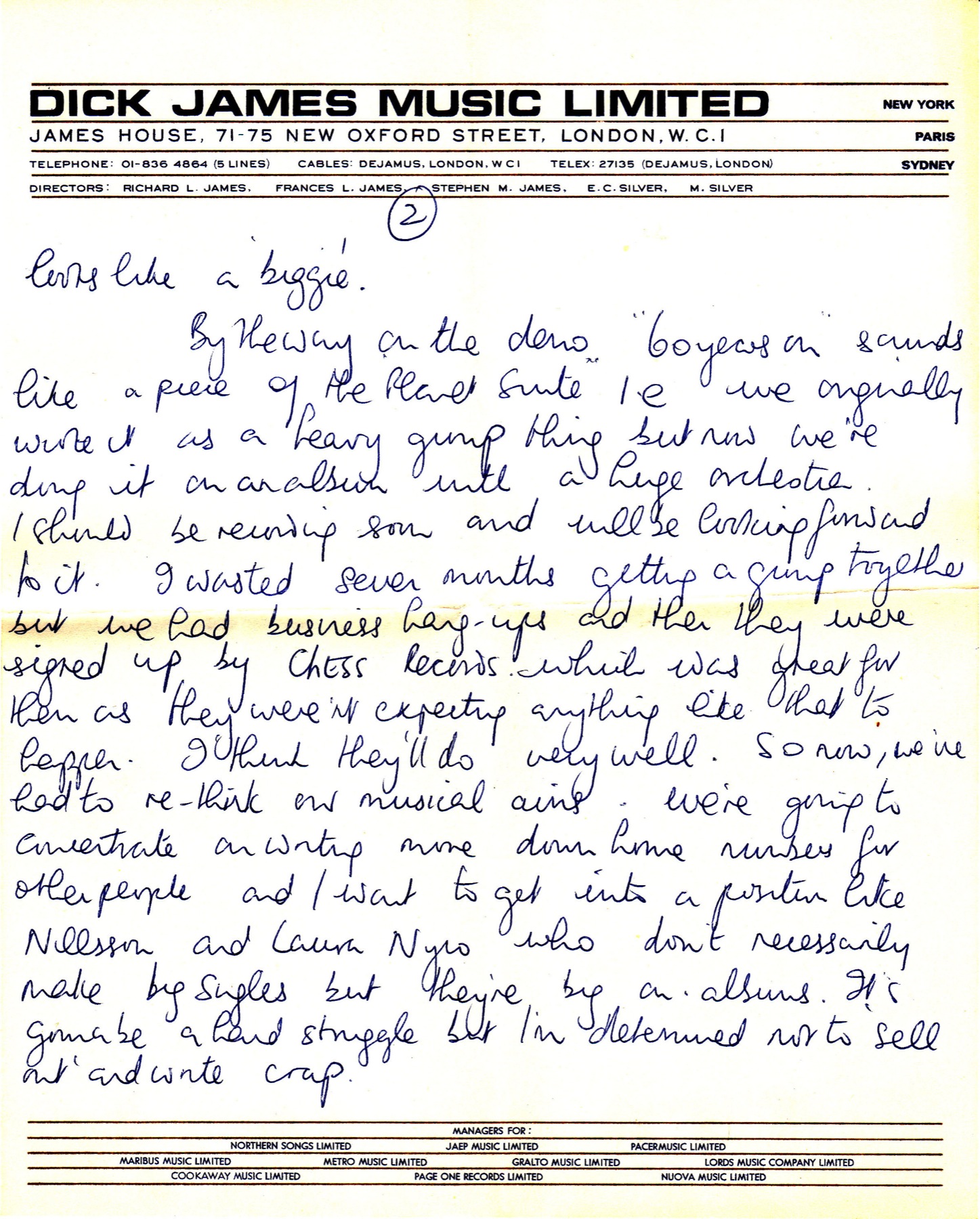
Letter courtesy of Danny Hutton and the Danny Hutton Archive.
“Elton then phoned from London and said ‘I’m coming to town,’ announced Danny Hutton. “He arrived and the first place I took him to eat was Billy James’ Black Rabbit Inn. Then I brought him up to the house. I phoned Van Dyke Parks to come up. And Elton played the piano at my house on Lookout Mountain.”
Russ Regan had asked Neil Diamond to introduce Elton for his debut performance at The Troubadour.
The following day while Elton John was preparing for his game-changing opening at the Troubadour, Regan was running a record company and couldn’t attend his sound check at the club.
“And then the next day there was Elton’s sound check at the Troubadour and I was so busy at the label I couldn’t make it,” lamented Russ. “Rick Frio was working for me at MCA and I sent him. After the sound check, Rick calls me and says, ‘Russ, you’re not gonna believe it. We got one here. We got one!’”
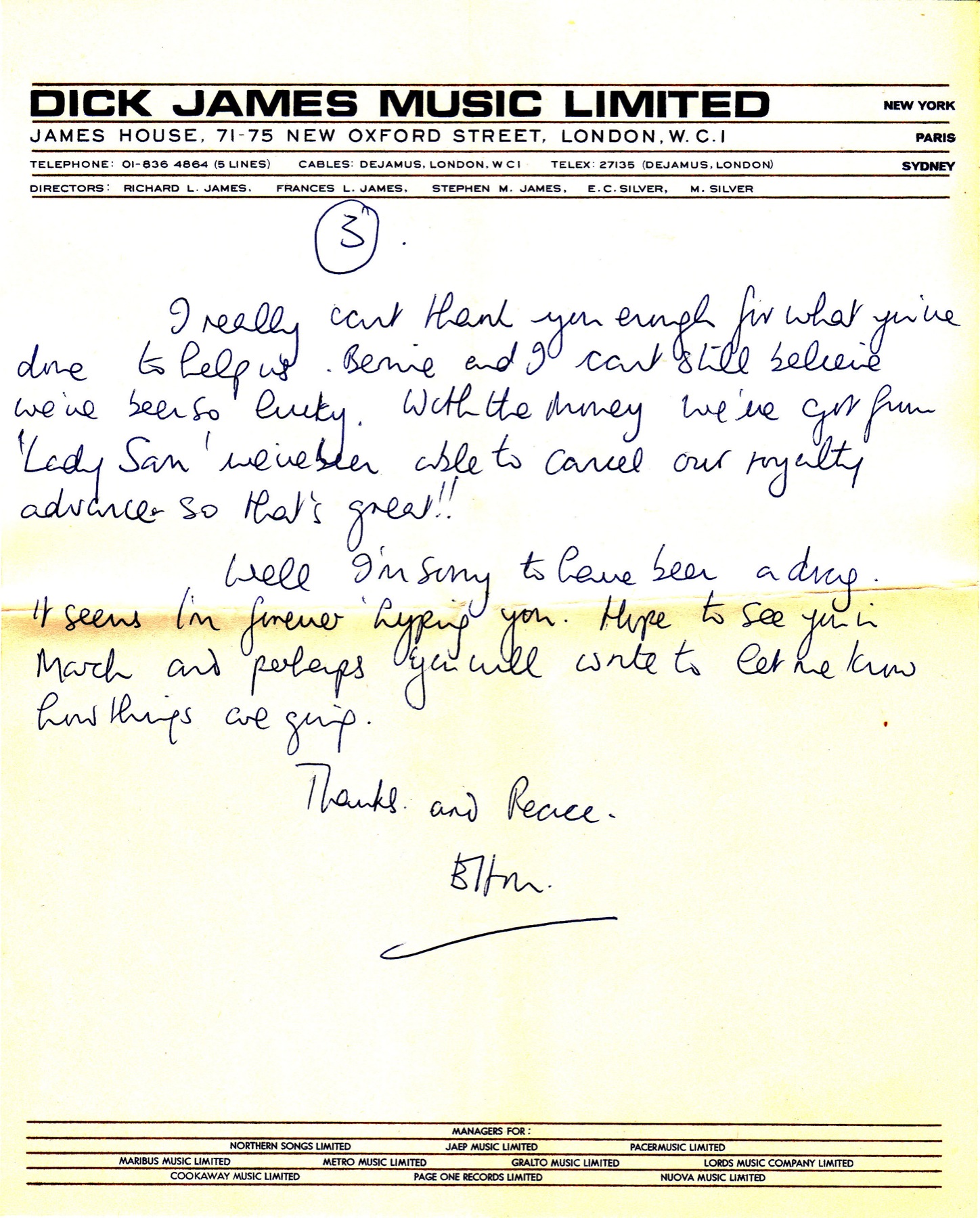
Letter courtesy of Danny Hutton and the Danny Hutton Archive.
Regan then went beyond the call of duty, and as Elton John’s advocate, telephoned everybody in his office rolodex and invited them to the Troubadour in West Hollywood on Aug. 25, 1970, the first evening of a historic six-night engagement.
Russ was ringside for Elton’s launch, along with Danny Hutton, Neil Diamond, Quincy Jones, Henry Mancini, Chris Darrow, Micky Dolenz, Graham Nash, David Crosby, Randy Newman, Van Dyke Parks, Nancy Retchin, John’s booking agent Jerry Heller, at the Chartwell agency, members of Bread, photographers Ed Caraeff and Kurt Ingham, Jacoba Atlas of Circus magazine, Mike Love, publicist Norman Winter of Totem Pole, GO! magazine columnist Rodney Bingenheimer, John Gibson of The Hollywood Reporter, and pop music critic Robert Hilburn from the Los Angeles Times, who subsequently wrote the review that touted Elton John to the regional and national entertainment media.
Reporters from Time and Newsweek were in attendance and hailed Elton John’s new stardom. Leon Russell, Denny Cordell, Blackie Dammett, Gordon Lightfoot, and Brian Wilson came other nights.
“I’m at The Troubadour opening,” reflected Hutton. “I’m with Brian Wilson and Van Dyke Parks, and Randy Newman came over to the table and said, ‘Hey, thank you for putting my kid through college with 'Mama Told Me Not to Come.'”
“Danny Hutton brought Elton up to my house in Bel-Air in 1970,” Brian Wilson told me in an interview for his 2007 Pet Sounds tour program.
"Three Dog Night earlier did ‘Your Song,’ still my favorite of Elton’s, and he had just played The Troubadour. I heard he was nervous to meet me when they rang the intercom system. I was nervous to see him! So I answered the buzzer and sang ‘It’s a little bit funny’ from ‘Your Song’ to them before they came up.”
The day after Elton John’s acclaimed Troubadour debut, promoter Bill Graham telephoned Jerry Heller Elton’s booking agent, and offered him $5,000.00, the highest fee ever paid to a new act at his Fillmore venue.
In 2016, I was working on a Monkees’ book with music historian Gary Strobl, who is also a technician/archivist and picture librarian for both noted photographer Henry Diltz and I.
One afternoon Micky Dolenz called the office and I asked Gary to speak to Micky about Elton John.
“I was there at Elton John’s first show at the Troub,” recollected Micky. “[My wife] Samantha and I were invited over to a party at a little, oh, that’s a great little story. So we hear about this new kid in town, Elton John from England and he’s getting a buzz, and he’s doing a show at the Troub. It’s his first show. Samantha and I were there and we knew his L.A. record company rep, I can’t remember the guy’s name, got a little house in Hollywood and invited us to the after party.
“It was quite a crowd of the typical Hollywood at the time and hip wazee. Elton John, of course, was not well known at the time. Well, Samantha had gone to England recently to see family, I guess, and had come back with cool clothes for me from Carnaby Street, or wherever, new, hip, cool London fashion. And one of the things was a T-shirt, an Andy Warhol T-shirt with all the Marilyn Monroe. He did that poster or a painting of Marilyn Monroe in all different colors. Well, I guess somebody’d got the rights to do that as a T-shirt. So it was a very cool T-shirt of that Andy Warhol, I guess it was multiple Marilyn images. And I wore that T-shirt. We see the show.
“I remember Elton only had three pieces with him at the time. Then we go and we drive over to the after party. We walk in and everybody’s Hello, hello, hello. And I remember actually quite clearly walking into the kitchen, and this is like a really kind of typical three-room Hollywood, stucco little house on Fairfax Avenue. And I remember walking around saying hi to everybody and I walked in the kitchen and there’s Elton John. He turns around. He has on the same T-shirt. And he looks at me and he goes, ‘Oh, fuck!’ (laughing) Like two women showing up with the same dress. I didn’t give a shit. I laughed. I was like, ‘Oh, wow, man, cool shirt!’ But I think he was really, he was like, must have been so pissed off. Samantha laughed. That was fun.”
“This Elton at The Troubadour was something euphoric. I was on a high for three days,” admitted Regan. “I couldn’t believe I was so lucky to have an artist like Elton John. It wasn’t a feeling like when Brian [Wilson] would play me his singles before [‘Good Vibrations’] they were released. It was beyond that.”
In our 2014 interview, Russ also reminded me, “Don’t forget we went from The Troubadour in 1970 on Santa Monica Boulevard to the San Francisco Troubadour that Doug Weston also had. And Elton didn’t do that well in San Francisco. He did all right but it wasn’t the same magic,” emphasized Regan.
“Here’s the bad news,” Regan confessed. “We then went to New York and they put us in the Playboy Club for a luncheon for everybody. By the time Elton went on half the people had left. And Elton was so disheartened that his performance was not that great. OK. He didn’t do very well at the Playboy Club and I don’t blame him.
“So the next day we’re on a train going to Philadelphia to play at The Electric Factory. We get there and check into the Marriott Hotel and all the radio people are there. Kal Rudman of the music industry trade magazine Friday Morning Quarterback came up.
“I had picked up the phone in advance for my people. I’m having them up to a big suite at the Marriott, people are coming by, and I’m ordering 20 club sandwiches at a time. ‘Cause club sandwiches are cut up in fours. Right? I’m having drinks brought up.
“So all of a sudden, Elton’s room is next door to my suite, I get a call from one of MCA President Mike Maitland’s assistants, who runs me down and says, ‘Russ, you’ve gone out of your mind. We all think you’ve lost your mind with this Brit that you’re promoting.’ He called him ‘a Brit.’ ‘What are you talking about?’ ‘You’re out there spending all this money and we’ve sold about three thousand records. It hasn’t translated into sales. We aren’t selling shit and you’re spending this money!’
“I said to him, ‘it’s just a matter of time before he pops loose. This guy is gonna be big!’ So he says, ‘Well you know what they call your big time superstar?’ ‘What are they calling him?’ ‘They’re calling him Regan’s Folly.’
“By the time Elton got to Philadelphia he was Regan’s Folly. I called the guy every name in the book and hung up on him. I walked next door and went to Elton and told him what had just happened. And Elton looked at me. I will never forget these words, ‘Russ, tonight I’m gonna burn the city of Philadelphia down.’
“He had a song called 'Burn Down the Mission.' Right?’ So we get to The Electric Factory. He does his set and the last song was 'Burn Down the Mission.' And he did it for 20 minutes. He was under and on top of the piano. He was out in the audience. He was everywhere. People were going out of their minds. I said, ‘This is it.’ And we finally got out of there about midnight and called room service for a couple of banana splits.
“I got to bed at 3:00 a.m. in the morning. I was awakened by Sam Passamano, who was the MCA branch manager.
“He called me at 10:30 a.m. and said, ‘Russ, I have to wake you up and I know you were up all night. But I have to give you some news. I just had to order 5,000 Elton John albums. Something happened last night.’ ‘Thank you very much,’ and I went back to sleep.
“Two hours later Sam calls me again he woke me up again. ‘I know you’re still sleeping and not checking out until 2:00 p.m. But I had to order another 5,000 albums.’
“I then called the MCA office and asked for the Maitland’s assistant and he picked up. I said, ‘This is what just happened. Sam Passamano has ordered 10,000 Elton John albums and you can go fuck yourself and tell everybody they can go fuck themselves ‘cause Regan’s Folly is coming home!’ And I hung up.
“Then what happened was Elton John took off. And don’t forget we hadn’t put out the single yet. When I came back we released ‘Your Song’ as the single. I loved that song.
“Now get this. I was being second-guessed. Everybody was going with 'Take Me to The Pilot.' I loved that, too, but ‘Your Song’ is the hit. So guess what, that 45RPM, if you can ever find one, 'Your Song' is the A-side and 'Take Me To The Pilot' as the B-side. ‘Cause everybody thought I was crazy putting out 'Your Song.' ‘They’re gonna flip it!’ And they never did because 'Your Song' was a smash.
“The only supporters I had at MCA Records were Rick Frio, Pat Pipolo, and Norman Winter. Elton, his manager John Reid, my wife and I went to Hawaii for a week together socially.”
“In September 1971 I went to see Elton play at the Greek Theatre,” Hutton volunteered. “After the show, he’s kind of short with me and I’m a little bummed out and I’m with a guy from grammar school. I went home and there’s all these cars parked near my place. I get in to my garage and ‘Surprise!’ Elton threw me a surprise party at my house. Cass [Elliot] is there. She was a sweetheart and never had attitude. It was very cool. So Elton John did not forget me.”
In November 1970, Elton John performed an intimate concert at A&R Studios in New York, recorded for WABC FM. It was just a month after his third album Tumbleweed Connection was out in the United Kingdom and before the January 1971 U.S. scheduled date.
A&R Studios was the same facility where The Band in 1968 recorded the majority of their Music From Big Pink but outing. "Tumbleweed Connection"was a concept album based on country and western themes. Lyricist Taupin at the time had the Americana bug and influenced by Music From Big Pink and the group’s 1969 follow up, The Band.
In front of 125 people, Elton played in his then three- piece line up of himself, Dee Murray on bass and Nigel Olsson on drums. Intended for broadcast only, its pristine quality – engineered by the legendary Phil Ramone (the ‘R’ in A&R Studios) – meant that the recording of the performance became a fast- selling bootleg. Sales were so swift that it had to be rush-released as 17.11.70 on DJM Records in April 1971, capturing six of the concert’s tracks on a single album.
The album was originally released on May 10, 1971 and entered the Billboardalbum charts on May 29, peaking at No 11. Elton was the first artist since the Beatles to have four albums charting simultaneously in Billboard stop 100 albums.
Incidentally the live photos on the front and back covers of the album were shot at Elton’s first ever shows in America, at the legendary Troubadour in Los Angeles, an engagement that changed the record and music business as well as his life.
“The album '17-11-70' was not meant to be a live one at all; we did one of the first- ever stereo radio broadcasts live at A&R Recording Studios in New York City in 1970 on the 17th of November,” remembered Elton.
“It was Phil Ramone’s studio,” offered John. “One of the greatest producers of all time, and we just went in the booth and played it as a three-piece: Nigel Olsson on drums and vocals, Dee Murray on bass and vocals, and myself. There was a studio audience of about 100 sitting outside the booth, hearing it coming through the loud speakers, and we just played. I’m astonished by how good we were, listening to this record. A lot of it was improvised, and you can do that when you’re a three-piece band because I’m really the lead instrument, and Dee and Nigel were so brilliant at following what I did.
“There’s a 16-minute track on it that was completely improvised, more or less, and I’m very proud of it: I think it’s one of the greatest live albums ever made. It wasn’t initially coming out as a live album, but there were so many bootlegs in those days that the record company put it out. I’m glad they did because it really is something I’m very very proud of.”
During April 2017, Elton John’s live album 17.11.70, initiated during Regan’s UNI/MCA tenure, remastered by Bob Ludwig, was reissued in expanded edition coinciding with Record Store Day.
17.11.70 reinstates six further songs from the concert and thus it is, at last, the most complete edition of the show available. The version of Amoreena here has never been released on vinyl. It’s a mixture of originals and then-recent covers (Elton takes on the Stones, the Beatles and Elvis).
17-11-70 captures the warmth, humor and showmanship of a 23-year-old on the brink of international fame.
“I green-lighted the Elton John 17-11-70 syndicated FM radio broadcast,” volunteered Russ Regan.
“17-11-70 was done in New York. I knew FM radio would embrace Elton. It was eventually released as an LP. Then I got accused of putting out too much product. I responded, ‘Look, with this kind of artist you can never put out too much product.’
“I then remain at MCA for another couple of years through Tumbleweed Connection, and Rocket Man.”
During 1972 Regan moved to 20th Century Records. As President he signed Barry White, the DeFranco Family, Carl Douglas, Maureen McGovern, and the Alan Parsons Project.
In 1980, Regan became PolyGram Records' General Manager of West Coast Operations. He was the music consultant on the "Flashdance"soundtrack that sold 14 million copies. Regan was also Music Supervisor for "'Breakin," "A Chorus Line," "This is Spinal Tap," "Karate Kid" and "Chariots of Fire."
In 1986 Russ was hired as President of Motown’s Creative Division. He worked on Smokey Robinson's successful comeback album, One Heartbeat, which went platinum and spawned two top 10 singles. Regan remained with Motown until the company was sold in 1988.
Russ Regan has been an independent consultant to record labels and musicians over the last few decades.
I saw Elton at the Troubadour and his June 21 1975 U.K. Wembley stadium concert with the Eagles and Beach Boys where he debuted "Captain Fantastic and the Brown Dirt Cowboy." I also attended Elton’s Oct. 25, 1975 Dodger Stadium show in Los Angeles.
As MCA Records West Coast Director of A&R during 1977-1978, I briefly worked with Elton on a few products. John has always been a diehard music fan and a record collector. At MCA we chatted inside Cherokee Studios at a Neil Sedaka Rocket Records release party of Neil’s LP, and about Tamla-Motown, Billy Stewart, Jackie Wilson, the Chi-Lites, Laura Nyro and the Hollies.
Elton confirmed he played piano on their 1969 recording session for "He Ain’t Heavy, He’s My Brother," a tune Tony Hicks of the band found on Denmark Street.
From 1976-1986, I would see Elton John once in a while at Gaylord Indian Restaurant at 50 North La Cienega Boulevard. near Beverly Hills. There was a time when any relocated British musician transplant who desperately needed a weekly Indian meal, Gaylord was their destination spot.
On Oct. 14, 1978, Elton gave a solo set performance for MCA record executives and staff employees in Los Angeles at the Century Plaza Hotel. It was the occasion to debut his new A Single Man album. John was pretty loose at the gig, chided the label, and did some selections from A Single Man not usually found in his 1978 live repertoire. The rendition of "Sixty Years On" was stunning.
When Russ Regan passed away in May 2018 at age 89, Elton John on twitter offered this condolence. “RIP Russ Regan. Thank you for believing in me and helping launch my career.” Elton John via Twitter Elton John (@eltonofficial) May 29, 2018.
“He was larger than life,” John’s longtime lyricist Bernie Taupin said in a statement. “A bighearted maverick, whose belief in us was a key component to our success in America.”
To really understand the Elton John portrayed in the Rocketman movie as well as the history that informed his 1965-1970 life long before he flew to America, I suggest a read of the engaging biography Tin Pan Alley: The Rise of Elton John by Keith Hayward on Soundchecks Books.
Keith Hayward takes us through Elton John’s pre-1970 commercial arrival who was born Reg Dwight, with stops at Denmark Street and its environs-London’s Tin Pan Alley.
His first job for Mills Music, teaming with lyricist Bernie Taupin for Dick James Music, followed by their songwriting collaboration for Lulu in a Eurovision Song Contest is also examined. Hayward charts the early Reg Dwight p.k.a. Elton John career up to his breakthrough live shows at Doug Weston’s Troubadour club in West Hollywood during August 1970.
During 2013 I interviewed Keith Hayward about his marvelous book.
Portions of our dialogue were utilized in my anthology book Inside Cave Hollywood: The Harvey Kubernik Music InnerViews and Interviews Collection Vol. 1, which was published in December 2017, by Cave Hollywood
Q: I more fully comprehend after reading your book more about Elton John was when he first arrived to the States. He was a by-product of the U.K. music publishing world.
A: At the same time I realized that there was no history of Tin Pan Alley in the U.K. from 1964 until its almost demise in 1970, (although it still existed up to 1976 when the last publisher left).
This was a pivotal period in the history of the U.K. music business and played a significant role in the careers of not only EJ but Cat Stevens, David Bowie, Marc Bolan; the singer songwriters who were moving away from Tin Pan Alley songwriters like Bill Martin, Tony Hiller and the like; and the emergence of producers as a significant force as well as the final transition from sheet music to records.
Q: As your book unfolds we really discover Denmark Street and the U.K. music publishing scene. The London Tin Pan Alley world that Elton John initially emerged from.
Tell me, and especially U.S. readers, and the uninformed music fan and record collector of sounds 1940-1980 about Denmark Street and the influence it had on Elton and subsequent jobs he held in that neighborhood.
A: Young Reg Dwight decided to leave school just before he completed his final exams because he had made his mind up that he wanted to work in the business in some way; especially as he had this inherent talent to hear sounds and create his own music from them. At an early age he was listening to music and buying records all the time so he was absorbing all of this music that would soon need a creative outlet. He went in search of a job in the centre of the British music scene in London in Denmark Street, London's Tin Pan Alley.
This was where all the greatest songwriters of the time were working, composing songs for artists of the day and for publishing into sheet music. They were working in a very formulaic way with few songs lasting more than 3 minutes and were specifically written for the masses to play themselves on the piano or at home.
It was also a time of the Eurovision Song Contest and many publishers and songwriters would specifically write songs for the competition just too get songs exposed across Europe. Although Reg was just a lowly tea boy come sheet music packer and distributor he was in a place where he could access these important people who he could watch and learn from and be at the centre of what was happening in the music business before it hit the public streets.
For instance he was able to hear the so called underground music coming from the U.S. before anyone else in the U.K. and being the absorber of music that he is it was it gave him the opportunity to create the Elton John sound.
Q: Your revealing interviews with the old school players of Tin Pan Alley are insightful, rarely acknowledged in music history books or TV documentaries. They were so forthcoming. Did you know you were on to a great book when these characters really talked music and not gossip?
A: I suppose I was in awe of these people sitting in front of me allowing to delve into their memory archives and tell me what it was like working in the business at a time that my own interest in music was emerging. For goodness sake these people wrote some of the best songs around at the time.
Q: Since every book on Elton John concentrates on his personal life, his musicianship and talent gets overlooked in most of them. Elton also seems to veer away from this period, never really going at length about Mills Music or his Dick James stint during interviews. But it is the backbone of your book.
I always knew how important Dick James Music was in establishing and overseeing the early work of Elton John. And, Reg (Elton) and partner Bernie Taupin also had the luck of being associated to publisher Dick James who had global clout owing to the catalogue of the Beatles he owned and administered.
In 1968, around the time when Reg worked for Mills Music as a tea boy and publisher assistant, he has told a story about running into Paul McCartney at Trident when Reg added piano to a Barron Knights recording session, and first introduced to McCartney. Paul then played his new song at the moment, Hey Jude to him.
Your book reinforces this essential artist history but Elton over the years distances himself from his Mills Music and Dick James world.
A: Thanks for spotting this. The book is a music history book focusing on a pivotal time in music history in the U.K. which arguably had as much influence on the American music scene as the Brill building had on the British music scene. It would have been quite a tome to just write about the British music scene in the U.K. at the time so I decided to Elton John as my example of how it all worked.
Dick was an important person in the history of Denmark Street not least because he managed to get the publishing for all of the Beatles songs and formed Northern Songs and then take a chance on Reg Dwight. But it was Dick's contacts, as is normally the case in all business, that helped derisk the risks and smooth the path to success.
For instance if it wasn't for George Martin then arguably Dick would not have got the publishing for the Beatles. If it wasn't for the fact that Dick knew the producer of the popular cult British music show Ready Steady Gothen he wouldn't have given the Beatles to sort of exposure that Brian Epstein wanted for Please Please Me to get to number one across the world. If that hadn't happened then where would we be without the Beatles. So you can see how important those relationships were and how they all influenced, arguably, world music!
Q: I sometimes feel Elton has a sense of shame about his gofer work and schlepping artists like Billy Stewart around, or dropping off sheet music. Yet, this education makes him so much different than so many other self-contained artists.
A:I can only speculate on the reason for this. It would appear that it’s all about image; perhaps Elton doesn't seem the time as Reg Dwight being of interest to the emergence of Elton John. Whilst I see the Reg Dwight period as the creator of Elton John it would appear that Elton himself only see's the Elton John period as being musically important.
Q: Do you have any idea why Elton’s 1969-1975 recorded work still has durability and impact. I know many later “copyrights” are played in concert these days, but this work is breathtaking.
A: My own take on this is that during this period Elton was creating unique work that started off as being very much underground. Hard to believe that now! However during these early years he gave a lot of creative control to other people such as Paul Buckmaster and Gus Dudgeon and was influenced by his friend and mentor Steve Brown. With Elton and Bernie, of course, all of these people created the Elton John sound that created the breathtaking work that you mention.
Elton is a writer of music but struggles to write commercial lyrics. The partnership was an odd one in that, unlike Tin Pan Alley songwriters, its words first and music second.
A lot of the early John Taupin songs come from poems that Taupin has written that may once have had a beginning, a middle and an end but had been chopped about by Elton to fit a piece of music that he had written. Whilst some purist Tin Pan Alley writers may sneer at this approach we must remember that the late sixties and early seventies saw the advent of psychedelic music and the sort of lyrics that had emerged from Elton's songs were right for that time.
As I said earlier Elton's music is influenced by an eclectic set of sounds that he had stored up all his young life. He was listening to all sorts of music and one of his early influences was actually Winifred Attwell as well as the jazz blues music.
Rock and Roll also played a big part in the Reg Dwight household. Taupin was into the same rock and roll music as Elton but he was an avid reader of Tolkein and authors of that ilk and his creative writing was more influence by his grandfather Poppy.
Q: What did you learn about him after interviews with Lionel Conway, Muff Winwood and Larry Page?
A: The main thing was the frustration that Reg felt about the lack of outlet for his songs. He was frustrated that DJM wanted him to write Tin Pan Alley formulaic songs for other artists and he just could not do that. Few wanted to buy them even though some of the more progressive bands like Three Dog Night could see the point in his songs.
Let’s not forget that in the U.K. this period was still steeped in TPA formulaic work and with the exception of the Rolling Stones and the Beatles most artists relied on TPA for hit songs. Reg and Bernie were not writing hits songs. Lionel, Muff and Larry could see the potential of the songs but could not see how it would work under the thumb of a traditional TPA publisher and therefore went about trying to get Reg away from DJM to other more independent labels like Island Records.
I interviewed Danny Hutton for the book and he said much the same to me. Reg did say that to others who were close to him during the early DJM years when he was attempting to write Tin Pan Alley standards and not getting very far with it.
However he was also frustrated being in Bluesology because he wasn't allowed to sing and this became worse when (John) Baldry came onto the scene. He did write a couple of new songs for Bluesology and so he did have an outlet for his creativity but my view is that he always wanted to be the flamboyant star called Elton John.
Dick was not to be persuaded though and, you can put this down to another quirk of fate, allowed Reg to record and release his own songs and the rest is history. Having said that if you listen to the first Elton song called I've Been Loving You, you will hear a classic TPA song which is why it flopped. Incidentally Reg is reported to have written to words for this song even though Lionel and Steve Brown claim that it was Don Black. Don denies any involvement. Bernie distances himself from the song as well.
Q: Elton was in Bluesology and the interviews with former mates, some of them were later in the initial Elton John Band and LPs, (Roger Pope, Caleb Quaye, Fred Gandy) were rather detailed. I see no sense of spite or unhappiness with former band mates, but at times it seems Elton was desperate to have a real debut LP chart. And, he was a master at manipulation. I always felt some of the tunes could have been co-writes.
A lot of the early stuff was really deep rooted and musically-crafted tunes when they went to production. Was everyone just too young, or on wage, to realize this? However your book shows no sense of bitterness. Am I on to something?
A: Yes you are and what you will no doubt understand as an author yourself there is a lot of research that end up on the lawyers or the proof editors floor. There is no doubt that Caleb Quaye was a massive influence on Reg's creativity in the early and formative years and wrote many songs with Reg during the pre DJM years; as did Kirk Duncan.
However just like Buckmaster's control over the arrangements it’s my opinion that Reg and then Elton did allow a lot of creative scope to people like Roger Pope and latterly Davey Johnstone, James Newton Howard and other band members to influence the Elton John sound without a significant amount of credit or financial gain. At the time it was not about money; they were just musicians who were enjoying creating new sounds and jamming in the studio.
There was no real management doing deals behind the scenes. This is something that Roger has mentioned to me from time to time but there is no bitterness now. I am sure he would benefit from a royalty though, (Haha).
Q: Your book also points us to bassist Dee Murray and drummer Nigel Olsson, who I still think are overlooked in the early work on record and in concert, plus radio broadcasts and TV appearances, especially in the U.K.
A: Although Dee and Nigel were the Elton touring band in 1970 it was really Hookfoot with the likes of Roger Pope, Caleb Quaye, Ian Duck and Dave Glover, who were Elton creative recording band. Hookfoot also played the very early EJ live gigs to showcase his early songs that ended up being on "Empty Sky, Elton Johnand Tumbleweed Connection."
This was a bit of a frustration for Dee and Nigel as they weren't really needed in the studio at that early stage. Once Hookfoot decided to do their own thing then Nigel and Dee became more prominent both in the studio and live. I still think that Roger Pope and Caleb Quaye are the best musicians Elton has worked with!
Q: Who was this Reg Dwight person from 1965-1969 in the UK? And, then this Elton John 1970-1975 character we heard and saw in the U.S.?
A: The person between 1965 and 1969 wasn't Elton John! It was a shy and rather staid young man called Reg Dwight who was an amazing piano player and potential songwriter but wasn't Elton John. Reg wanted to be Elton but it was someone who was currently trapped and subdued inside Reg Dwight. The freedom created by the likes of Paul Buckmaster, Gus Dudgeon, Steve Brown, Bernie Taupin and eventually Dick James, allowed Elton John to emerge from the skin of Reg.
It was like a butterflying emerging from a chrysalis. Getting the sort of praise that he received from people like Bob Dylan, Quincy Jones and his hero Leon Russell gave him the confidence after he played at The Troubadour to emerge more fully as the Elton John that was on show during 1970 to 1975.
My own take on this is that during this period Elton was creating unique work that started off as being very much underground. Hard to believe that now! However during these early years he gave a lot of creative control to other people such as Paul Buckmaster and Gus Dudgeon and was influenced by his friend and mentor Steve Brown. With Elton and Bernie, of course, all of these people created the 'Elton John' sound that created the breathtaking work that you mention.
Arrangers and Producers were extremely important in the U.K. at the start of the 1970's, sounds were becoming more complicated and it was now longer just a song that consisted of drums, bass, guitar and vocalist ala the Beatles and the Rolling Stones. Orchestras were introduced more into the world of popular music and these need to be arranged and produced to meet the changing tastes of the popular music buying public. Alongside Denny Cordell and George Martin came a new school of producers like Gus Dudgeon who had started using arrangers like Paul Buckmaster on iconic projects like "Space Oddity" by David Bowie.
Both Cordell and Martin were approached to produce the second Elton John album, (the black one), but were eventually overlooked to bring in Dudgeon and Buckmaster. Buckmaster was new to arranging and he was ripe to experiment in all sorts of things and was one of the first to use synthesizers, which are used on the Elton John album.
What also helped was that Elton gave Buckmaster complete creative control and so that comes across in that early but life changing album. The relationship between Buckmaster and Dudgeon was as much an influence on the Elton John sound as that of Elton John and Bernie Taupin.
Q: May I also suggest that the implementation of background singers on the first Elton John album owes something to Leonard Cohen’s work, his 1967-1970 albums and incorporation of background singers.
A: That's an interesting observation and not one I had thought about until now. Looking back at the interview with Paul Buckmaster it may well have been the case that he was influenced by the likes of Leonard Cohen as the emerging U.S. artists were of interest to Paul.
For instance if you listen to the backing on Border Song from the Elton John album there is an entire choir singing with a Gospel feel. Whilst it was Reg who chose to use the Barbara Moore Singers to take the lead in this role, (your readers will need to read the book to find out why!), I sure that Gus and Paul were a bigger influence on the use of backing singers that they are often credited for.
Q:And, the book also reminds us about Gus Dudgeon. Can you comment on his part in the Elton John sonic equation?
A: I know I have mentioned this in previous answers but Gus was, and still is, and significant influence on Elton's music even long after his death. I believe that Gus would have been part of Elton's creative team today if it hadn't been for his untimely death and I firmly believe Elton's career would have been all the better for it.
Q: Why did it happen for Elton John in August 1970 at the Troubadour? How could one opening night gig, a co-headline with David Ackles at a West Hollywood club propel immediate stardom?
A: I think it was the combination of Elton’s determination to be a star coupled with the longtime connections, record business experience and karma of Russ. Regan was a visionary A&R man who helped create this first buzz. Of course, the proof is in the grooves. Also, with Norman Winter as the U.S. PR person, writers in Hollywood and then all over America checked Elton out.
***
I agree that Russ was an important person in that initial period but we have to thank Roger Greenaway for singing EJ's praises at the Continental Hyatt. Let's not forget that Larry Utall at Bell Records had the first option on EJ material in the US and let it go and it was Russ's educated risk taking that made it happen. At the time Russ was one of the new breed of record executives and could spot a new style hit. But let’s also not forget that Danny Hutton played a big part in that early State side success and then Brian Wilson and at the time they could both do nothing wrong in the music business.
HARVEY KUBERNIK is an author of 15 books. His literary and music anthology Inside Cave Hollywood: The Harvey Kubernik Music InnerViews and InterViews Collection Vol. 1, was published in December 2017, by Cave Hollywood. Kubernik’s The Doors Summer’s Gone was published by Other World Cottage Industries in February 2018.
Harvey Kubernik’s "The Doors: Summer's Gone"has been nominated for the 2019 Association for Recorded Sound Collections Awards for Excellence in Historical Recorded Sound Research.
During December 2018, Sterling/Barnes and Noble published Kubernik’s The Story of The Band From Big Pink to the Last Waltz.
This century Harvey penned the liner note booklets to the CD re-releases of Carole King’s Tapestry, Elvis Presley The ’68 Comeback Special, The Ramones’ End of the Century and Allen Ginsberg’s Kaddish.
In November 2006, Harvey Kubernik was a featured speaker discussing audiotape preservation and archiving at special hearings called by The Library of Congress and held in Hollywood, California.
Kubernik’s 1995 interview, "Berry Gordy: A Conversation With Mr. Motown,"that initially was published in 1995 in Goldmine and HITS magazines has been licensed for inclusion in The Pop, Rock & Soul Reader edited by David Brackett to be published in 2019 by Oxford University Press.

